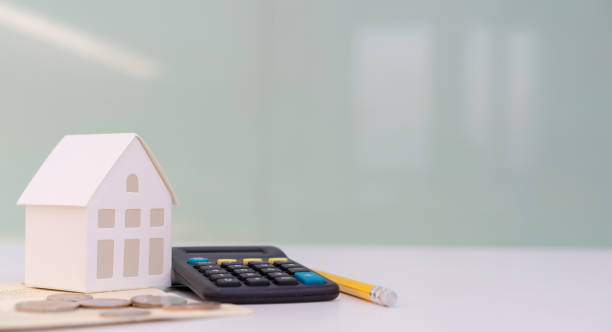On the House: Should I Max Out My Budget To Buy My First Home?
Q:Between the increases in mortgage rates and prices, it’s so hard to afford a home now. Should I max out my budget?
Don’t do it.
Granted, it’s hard not to buy a home at the top of your budget when prices have hit record highs and mortgage rates are climbing—especially if you fall in love with a particular property and get into a bidding war over it. But I urge you to think it through, because going all-in on a home at the edges of what you can afford is a big gamble. It’s a risky financial move at a time when inflation is soaring and the housing market appears to be shifting.
If you’re hit with an unexpected medical expense or your car breaks down, you might not be able to pay all those bills, along with the high mortgage. Even if nothing financially devastating happens, you don’t want to become house poor. You likely want to have enough left over every month to put some savings aside for emergencies, vacations, retirement—or even just those summer music festivals.
The rule of thumb that is buyers shouldn’t spend more than 30% of their income (before taxes) on housing. That includes property taxes and home and private mortgage insurance. Buyers with high child care, medical, or other costs might want to spend even less.
That means if you earn $100,000, you shouldn’t spend more than $30,000 a year—or $2,500 a month—on housing.
Keeping to your budget might seem impossible in today’s housing market where prices keep shooting up toward the sky and increasing mortgage rates are adding significantly to the cost of purchasing a home. Buyers might no longer be able to afford larger, turnkey homes in more desirable areas.
So what’s the inflection point? Some buyers will have to compromise on the size and the features they want in a home as well as where it’s located. They might consider moving to a more affordable market. Others might be forced to wait until prices or rates—or even both—come down. While this doesn’t look likely at the national level in the near future, the housing market is adjusting as the higher mortgage rates are putting a limit on just how high prices can go.
Those who aren’t in a rush may want to wait to see how the housing market shakes out. More homes are going up for sale, and some real estate agents report bidding wars are dying down. Some parts of the country are already seeing prices dip a little as the housing market may be entering into a correction.
Inflation is making it more difficult to budget your money
You’ve probably noticed that your grocery bills are higher, energy bills have soared, and you’re paying more to fill up your car.
It’s difficult to plan for inflation, which is eating into the bank accounts of just about every American. And that makes it harder to figure out a budget—and how much you can comfortably afford each month for a mortgage.
That’s why my advice is to give yourself as much financial wiggle room as you can. You may already know that if you’re moving from a small apartment to a larger house, you’ll be paying significantly more for electricity and heating and cooling costs. But energy costs are expected to rise 50% this year—and could be even higher.
And while homeownership costs are more fixed than rent, property taxes can rise (and likely will due to record-high home prices). Condo, co-op, and homeowners association fees can also go up.
Just because you can afford to make your monthly mortgage payments today doesn’t mean you’ll be able to do so next year if your other costs rise. So try to leave enough for rising costs when you’re putting together your budget.
Maintenance and repairs cost more than you think
Maintaining a home isn’t easy, nor is it cheap. If the roof springs a leak or your home develops a rodent infestation, you can no longer call your landlord to come over and fix it.
A week after my partner and I purchased our home, the boiler flooded a small area in our new basement. It was easy enough to clean up and fortunately didn’t cause any damage. However, it signaled there was a problem that needed to be fixed. Two days and more than $500 later, a part was switched out in the boiler and the problem was solved.
Two months later, a heavy, wooden closet door in our guest room fell off of its ancient rolling track and came crashing down in the direction of myself and my 13-pound dog. The dog ran behind a nightstand, and I stepped back just in time to avoid impact. We emerged unscathed. The nightstand wasn’t as fortunate.
Replacing those closet doors wasn’t cheap. Neither were the furniture, rugs, blinds, and everything else we purchased to outfit our modestly sized house. And then there were the tree removals, the gutter cleanings—and all of the things we never had to worry about before we bought a house.
Don’t forgo vacations and retirement, or forget about emergencies
Maybe you love (or aspire) to travel the world. Maybe you’d like to retire early (or at all). Or maybe you just want to avoid financial ruin if there’s an unanticipated emergency.
If you’ve kept your mortgage payments, and the rest of your expenses, at reasonable levels, then you’ll have a better shot of navigating the challenges—preferably while sipping something fruity as you lounge on a scenic beach in January.
For this and related articles, visit Realtor.com


Leave a Reply
Want to join the discussion?Feel free to contribute!